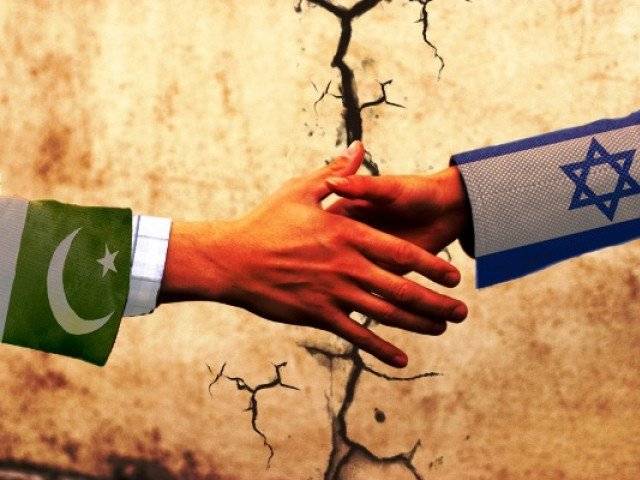Ever since Pakistan came into being, the ‘idea’ of Pakistan has been discussed ad nauseum. Questions such as ‘What did the founders of the country want it to be?’ and ‘What direction it has taken since then?’ have been asked by historians and social scientists for the last many decades. Books discussing the ‘idea’ and ‘ideology’ of Pakistan are available a dime a dozen. One school of thought considers Pakistan an ‘ideological’ state and in that stead compares it with Israel as the ‘only other ideological state’. This particular misconception is so popular that even Pakistan’s third military dictator, Zia-ul-Haq, once described Pakistan as ‘an ideological state, like Israel.’ Tariq Ali compared Israel and Pakistan in his book ‘Pakistan: Military Rule or People’s Power?’ published in 1970. Intellectual historian Faisal Devji wrote a book titled ‘Muslim Zion’ to hammer home this particular similarity. Mr. Devji defined ‘Zion’ as “a political form in which nationality is defined by the rejection of an old land for a new, thus attenuating the historical role that blood and soil play in the language of Old World nationalism.” This mythical Zion is very similar to the concept of ‘Medina’, an imaginary Muslim Homeland introduced by Venkat Dhulipala in his book ‘Creating a New Medina’.
There are some obvious superficial similarities between the way in which Pakistan and Israel came into existence. Leader of All-India Muslim League, Mr. MA Jinnah was not a big fan of the state of Israel (based on his public statements and not the number of books in his library). Mohammad Iqbal, Pakistan’s national poet, wrote frequently against the ‘conniving’ Jews and how they basically controlled the western world through banking systems. Pakistan’s first foreign minister, Sir Zafrulla Khan, spoke vociferously against Israel at United Nations General Assembly sessions. However, there was a moment in time when both countries used similar arguments to gain entry to the United Nations. The Indian Union advocated against entry of Pakistan to the United Nations but Pakistani diplomats argued that they were a separate nation and a separate country than India so they deserve a seat at the UN. When Israel forwarded the same argument in their favour one year later, Pakistan’s diplomats actually opposed it. The initial leadership of both countries shared some common traits and there was an initial fear of the neighbour/s that shaped the foreign and defence policies of the respective countries.
For all of the surface similarities, the ideas that lay behind Israel and Pakistan are different enough for the claim to ideological twin-ship to look shaky on closer inspection. One has to understand the demand for Pakistan in the context of ‘Indian Muslim Nationalism’ which comprised of a particular segment of elite of a particular geographic area and their sense of loss as well as fear of losing out to the dominant religion (the ‘salariat’ thesis of Hamza Alavi). Social Scientist Christopher Jaffrelot wrote in ‘The Pakistan Paradox’ that: “The idea of Pakistan grew out of a separatist ideology which was crystallised at the end of nineteenth century by the Muslim Intelligentsia of North India. This idea was primarily conceived by an Urdu-speaking Upper caste elite group fearing social decline.” The centripetal and centrifugal processes at work in Muslim-majority and Muslim-minority provinces in British India also played a major part in the ideation of Pakistan, unlike the Zionism project.
Mr. Devji probably sounds a bit hyperbolic making statements like the “Jewish State might never have come into being without its Muslim twin”. Zionism was not borne out of the wishes of an elite wishing for a land to regain their former glories. There was no homeland for the Jews before Israel came into being. Two thousand years of forced exile cannot be compared to what Muslims of North India might have felt under the yoke of British Colonialism. There was no ‘Balfour Declaration’ for the Indian Muslims nor do they had to physically fight the British for their independence. Simon J. Rabinovitch, Assistant Professor of History at Boston University wrote about Faisal Devji’s inaccuracies thus:
“Pakistan may have created a nation practically out of thin air, based on a shared sense of belonging, paranoid politics and newly felt desire for self-determination, but Israel did not. The choice of the Land of Israel as the site of the modern Jewish national project was not accidental at all, and while it is true that other options were considered at different times, within a decade of the First Zionist Congress, it became clear to most Zionists that in order to be tenable, the new national project could only be directed to Israel, precisely because it was already invested with spiritual and historic significance.”
Particular attention should also be paid to what both countries have achieved since their inception. While Israel is a modern pluralistic society, Pakistan hovers between military autocracy, feudalism and democracy. Israel is a secular country with an unwritten constitution while Pakistan is an ‘Islamic Republic’ with an undemocratic ‘Objectives resolution’ as part of its constitution. Israel has made significant advances in many technical fields and remains a hub of tech entrepreneurship unlike Pakistan which till recently ignored its technology sector and where YouTube remains banned. The ‘ideological’ similarity is superficial and in Pakistan’s case, the guise of ‘ideology’ has only been used by right-wing elements and the military establishment to suppress dissent. The era of ‘ideological’ states is over after the demise of USSR and the world has entered the era of pragmatism. If we keep insisting on resurrecting the ‘ideology’ we’ll be left behind in the world. It is time to move on beyond this ridiculous notion.






